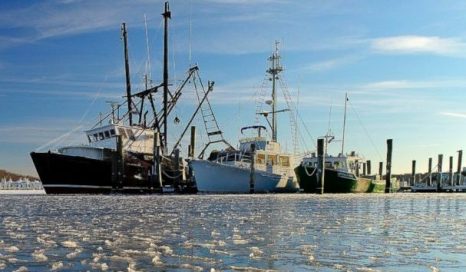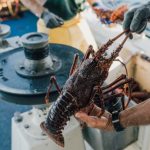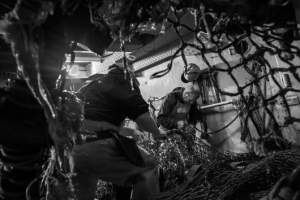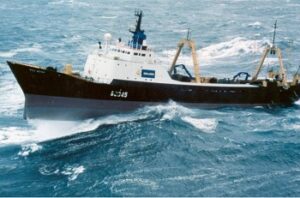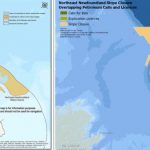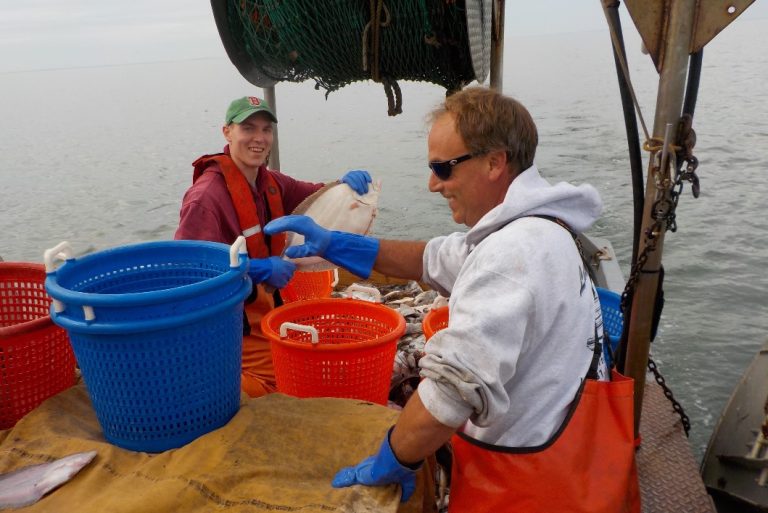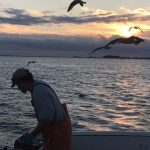Category Archives: Mid Atlantic
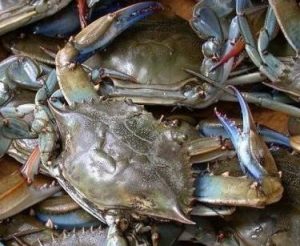
Blue crab population in Chesapeake Bay down for second year
The blue crab population in the Chesapeake Bay declined by nearly one-fifth for the second year in a row, with the male population hitting a trigger point that has lead to discussions over management, according to a new report. Experts say the overall stock remains healthy and decline is not cause for immediate concern, but that they are closely watching the numbers. The harsh winter coupled with a scarcity of young crabs last year has contributed to the low numbers in the beginning of the crab season,,, >click to read<13:04
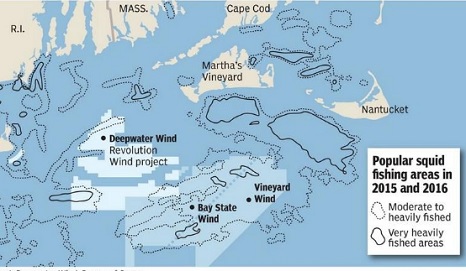
R.I. squid fishermen fear wind power
Rhode Island fishermen say a patch of the Atlantic Ocean south of Martha’s Vineyard is among the best places around to catch squid. They are also the same waters in which a developer selected by Massachusetts plans to install up to 100 giant wind turbines that would supply clean, renewable energy to the state. Now, Rhode Island coastal regulators and the state’s fishing community are raising concerns that the offshore wind farm that Vineyard Wind wants to build in 250 square miles of federally-owned ocean may affect access to the squid grounds that are critical to the Point Judith fleet. >click to read<09:13
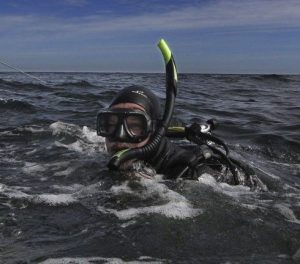
S-K Fund: Salem profs win $296K for Cape Ann project to developing to mussel aqua-farm
Two Salem State University marine researchers will receive just over $296,000 in Saltonstall-Kennedy grant funds to expand their project aimed at developing offshore commercial shellfish aquaculture, the National Oceanic and Atmospheric Administration announced Thursday. The project by SSU marine biology professor Mark R. Fregeau and SSU colleague Edward Maney Jr. is the only North Shore-based project included among the 38 projects nationally that will receive a slice of the $9 million NOAA is doling out in the 2018 Saltonstall-Kennedy funding cycle. >click to read<19:49
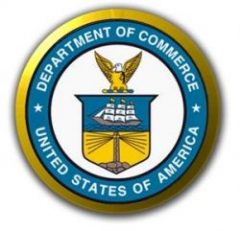
U.S. Commerce Department Announces Appointments to Regional Fishery Management Councils for 2018
The U.S. Commerce Department announced the appointment of 30 members to the eight regional fishery management councils that partner with NOAA Fisheries to manage ocean fish stocks. Twenty-nine of the new and reappointed council members will serve three-year terms from August 11, 2018 through August 10, 2021. One appointed member is filling an at-large seat recently vacated on the Western Pacific Fishery Management Council and this member will serve through August 10, 2020. >click to read<17:02

Conservationist intends to sue five states over whale entanglements, including individual lobstermen
A noted North Atlantic right whale conservationist who is suing Massachusetts officials over the licensing of commercial lobster pot gear has said he intends to do the same thing in five other states starting with Maine. The Maine DNR is killing and injuring endangered whales and sea turtles in U.S. coastal waters from its licensing of lobster pot gear, and gill nets, said Richard “Max” Strahan of Whale Safe USA, which is based in Cambridge. >click to read<08:18
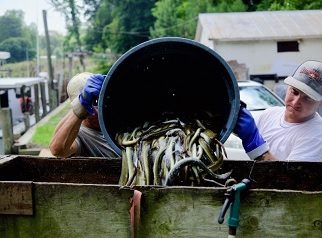
Slithering from the bay to dinner tables far overseas
When onlookers see Jimmy Trossbach pull up pounds and pounds of eels from his pots from the water, they are amazed. “They get a little closer to stare at them,” Trossbach said. “Then they get scared and they back up” from the slimy, snake-like aquatic creatures. The most frequent comment he hears is that they didn’t know eels existed in the Chesapeake Bay, just like oysters, crabs, rockfish and other marine species with which Marylanders are familiar. A waterman who lives less than a mile away from where he was born in Drayden, Trossbach has spent many of his waking hours hunting for eels up and down the bay and its tributaries for the past 31 years. >click to read<16:33
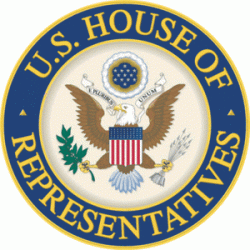
U.S. House set to vote on key fisheries bill, HR-200, Tuesday
It’s called the Strengthening Fishing Communities and Increasing Flexibility in Fisheries Management Act, or H.R. 200. It’s also referred to as the Modern Fish Act. Its author, Rep. Don Young, says the bill would update and improve the Magnuson Stevens Act, the primary law that guides federal fisheries regulators. “Reauthorizing the MSA will ensure a proper balance between the biological needs of fish stocks and the economic needs of fishermen and coastal communities,” Young said after the House Natural Resources Committee approved his bill in December. “MSA has not been reauthorized since 2006. It is long past time for this Congress to act and support our nation’s fisheries.” >click to read< Read the HR-200 Bill->click here< 08:39

Lets get every Rep. in the House to Co-Sponsor “American Fisheries Advisory Committee Act” S1322
Greetings from Gloucester! My name is Sam Parisi, and as some of you know, I have been concerned with the process of how S-K Funds, and distribution of the funds have been handled by NOAA.
I have asked our Senators to support Bill S1322 and I am happy to say thanks to Angela Sanfilppo, The Mayor of Gloucester, The Mass Lobster Association, the Gloucester Fisheries Commission and fisherman up and down the coast that have contacted Senator Markey who is on the committee, and is now with us in support of this important the bill, which will be going to the House.,, I ask all of you to contact your Congressmen and Senators in your area’s to tell them to vote in favor Senator Dan Sullivan’s bill, the “American Fisheries Advisory Committee Act”, S1322. >click to read<18:01
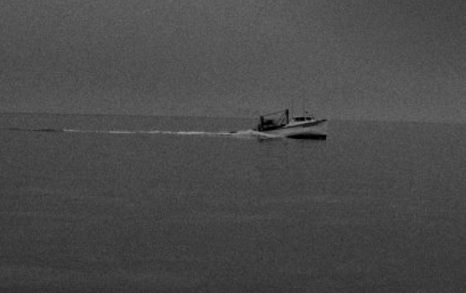
The Incredible True Story of the Henrietta C.
That Monday opened with winds coming steady out of the east-northeast at 20 to 25, or kyowking, as they say on Virginia’s Tangier Island. It’s one of many old and strange words used by the people there: kyowking, or blowing hard. A day unfit for pleasure craft and weekend sailors. But April 24, 2017, was also a workday, and for 72 of the island’s watermen, that meant venturing out into the Chesapeake Bay to harvest its famed blue crabs.,, So it was that at five o’clock that blustery morning, Edward Vaughn Charnock and his son, Jason, slacked the lines on Ed’s workboat, the Henrietta C., and chugged west from the harbor in the predawn dark. >click to read<
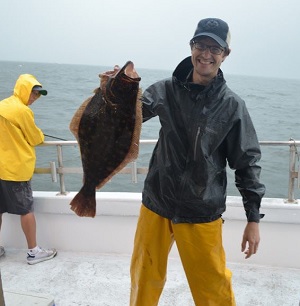
Climate change moving fish north, threatening turf wars, study says
World conflict is likely to increase over access to fisheries, as species move north in response to a warming ocean, according to a Rutgers University study published last week in the journal Science. “Seventy or more countries will likely have to start sharing with their neighbors” in coming decades, said lead author Malin Pinsky, including the U.S., Canada and Mexico.,, Gregory DiDomenico, executive director of the Garden State Seafood Association, said northern states such as New York argue they should now get a larger allotment for their fishing industries. He said allotments, which are set by the Atlantic States Marine Fisheries Commission and the Mid-Atlantic Fishery Management Council, are based on the history of landings by state. >click to read<23:32
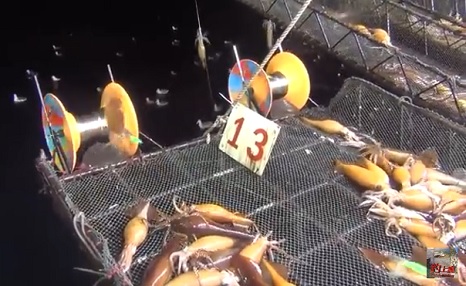
How China’s squid fishing programme is squeezing its neighbours and creating global sea change
Critics have said China keeps high-quality squid for domestic consumption, exports lower-quality products at higher prices, overwhelms vessels from other countries in major squid breeding grounds, and is in a position to influence international negotiations about conservation and distribution of global squid resources for its own interest. Fishing ships from China have accounted for 50 to 70 per cent of the squid caught in international waters in recent years, effectively controlling the supply of the popular seafood, according to an estimate by the Chinese government. A price hike for squid bought by the United States from China has been accompanied by a decline in quality, Video, >click to read<12:54

Misguided Opposition to Wind Farm? The rambling random notions of an unhinged crack pot.
As we face multiple global ecological crises, magnified by climate change, it is puzzling, even frightening, to see opposition to one of the major and already functioning forms of renewable energy, especially from the marine resources community. One would think that this community was completely ignorant of the proven threats of oil tankers to our fisheries and estuaries, or of the overfishing of food fish, or the destruction of coastal estuaries, the fish breeding grounds, for condominiums, hotels, resorts and other incompatible uses, or the polluting runoff from farms, sewers, cesspools and industry. The commercial fishing community has long sat on the sidelines as environmentalists fought the good fight to preserve ocean life.,, >click to read<10:19
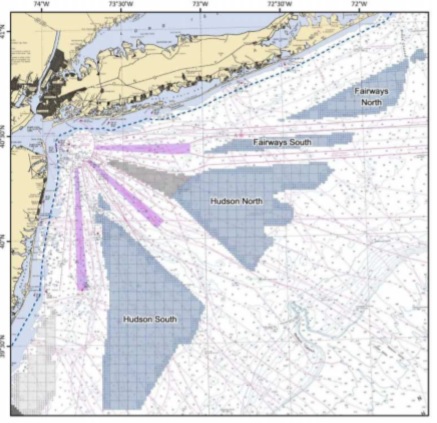
Wind Turbine Development and the future of fishing? Nils E. Stolpe/FishNet USA
Let’s start with commercial fishing perspectives on wind farms in the North Sea: Seventeen fishing vessels docked in the centre of Amsterdam, a city that built its wealth and prosperity on the herring fishery. Between 600 and 700 fishermen from Holland and Belgium arrived in the city for a peaceful but highly visible protest that was followed by dozens of journalists.,,, In spite of the fact that in the U.S. our experience with producing electricity with offshore wind turbines is virtually nonexistent, we are apparently well on the way to committing billions of dollars to the effort – and most of that effort is going to be in the waters off New England and the mid-Atlantic. How much experience do we have with offshore wind turbines in the United States? >click to read<12:23
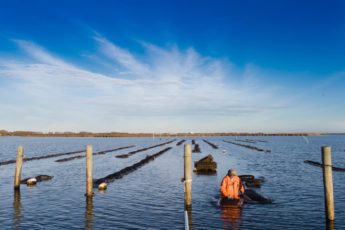
Commentary: Questions abound with industrial oyster farm bill, It’s dirty – plain and simple.
Wonder what all the heartburn is about with the oyster restoration bill sponsored by local legislators Sen. Bill Cook, R-Beaufort, and Rep. Beverly Boswell, R-Dare? It’s dirty – plain and simple. And although the who, what and how parts are now visible, there are a ton of questions about various entities that are yet to be answered. The North Carolina Coastal Federation is taking the heat for the oyster aquaculture bill, H361, that contains a few needed fixes but primarily was written to benefit one company – a foreign company with a murky record in other states where it does business. But the Coastal Federation and the collaboratory that was appointed to map out a plan to grow the state’s oyster industry didn’t write the bill. >click to read<10:14
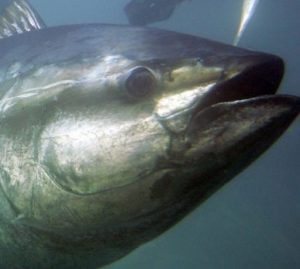
Tuna ruined his life, then saved it
Nobody knows more about the ups and downs of the fish industry than Dennis Gore. Riding high, he was one of the most successful tuna buyers in the world. At the bottom, he was bankrupt, depressed and loathed by commercial fishing captains he couldn’t afford to pay. At one point, his Rainbow Connections company was “doing $9 million in sales a year, mostly selling bluefin to Japan.” On the other end, he was sitting in his living room, “smoking pot and listening to the Grateful Dead.”For years Gore refused to talk about it. “I’ve kept all this inside of me for so long, and it’s been eating at me,” he said while sitting on a picnic table at O’Neal’s Sea Harvest in this sleepy little fishing and boat-building village. >click to read<16:30
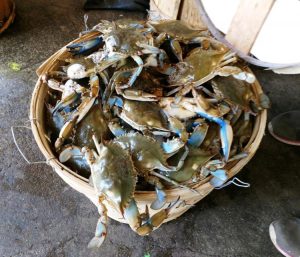
Shrimp pass hard-shell crabs as North Carolina’s most lucrative seafood
Hard shell blue crabs had been the state’s leading seafood in pounds caught and in dockside value for decades. They still lead in pounds caught, but shrimp have taken over for the first time as the most lucrative seafood in North Carolina. Last year’s shrimp value came in at $29.6 million, besting crabs by nearly $12 million. In 2016, the shrimp sold for $28.2 million, again beating crabs. The 2017 shrimp catch reached 13.9 million pounds and 13.2 million pounds the year before that. Both years set new records. Hard crabs are being overfished, said Jason Rock, a state marine fisheries biologist.,,, Commercial fishermen disagree with the state’s alarm. >click to read< 12:03
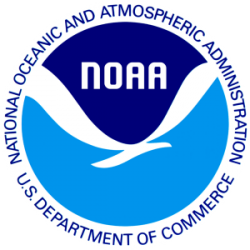
NOAA Fisheries Seeks Comments on Future Reporting Requirements for the American Lobster Fishery
The Atlantic States Marine Fisheries Commission recently approved Addendum XXVI to Amendment 3 of the Interstate Fisheries Management Plan for American Lobster to improve the scope and type of data collected in the lobster fishery in order to improve stock assessments, assess potential impacts of wind farms, and better assess interactions with marine mammals. The addendum includes recommendations to: Require all federal lobster permit holders to report on catches for each fishing trip. Have NOAA Fisheries collect data on where, when, and how long fishermen are fishing. Expand NOAA Fisheries’ offshore biological sampling program. >click to read<17:07
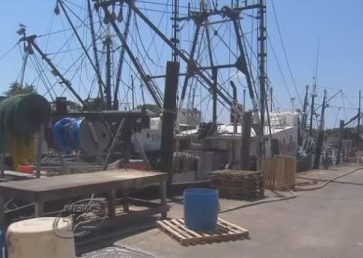
New Jersey Lawmakers Calling on Feds to Lift Strict Limits on Fluke Fishing for This Season
The State Assembly is asking the federal government to suspend a 40 percent quota reduction that enters its second year until a new fluke stock assessment is completed and new rules can be established based on those findings. “NOAA recommendations for the 2017 and 2018 seasons were based on flawed data collected from inconsistent sampling and methodology,” said Assemblyman Edward H. Thomson (R-Monmouth/Ocean), who sponsored the resolution to freeze limits to 2015 levels.,, “New Jersey desperately needs Washington to stop relying on flawed numbers and bad science and complete newer, more precise stock assessments so we can accurately assess the health of our fluke stocks while protecting our fishermen’s livelihoods,” >click to read<12:55
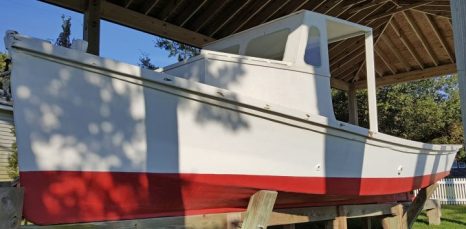
Ocracoke’s Two Blanches
Blanche Howard Joliff was a young teenager when her father, Stacy Howard, decided in 1934 that he needed another boat. He commissioned a master boatbuilder, Tom O’Neal, to begin building him a fine skiff. The work was finished by another island boatbuilder, Homer Howard, who added a rounded cabin near the prow. Proud of his well-designed craft – a traditional deadriser with a V-shaped hull at the bow that’s flatter toward the stern – Howard gave it the name of his daughter, Blanche. >click to read<13:47
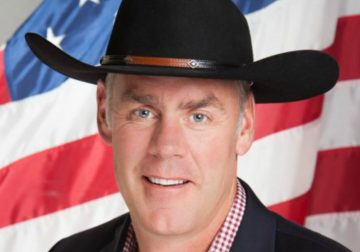
Administration looks offshore for wind energy boom
The Trump administration is “bullish” about offshore wind, working with governors in the Northeast to transform what was once a fringe and costly investment into America’s newest energy-producing industry. “When the president said energy dominance, it was made without reference to a type of energy,” Interior Secretary Ryan Zinke told the Washington Examiner in an interview. “It was making sure as a country we are American energy first and that includes offshore wind. There is enormous opportunity, especially off the East Coast, for wind. I am very bullish.” On a recent tour of coastal states, Zinke found “magnitudes” more interest in offshore wind than oil and natural gas drilling. >click to read<11:20

AIS Inc. Wins Northeast Fisheries Five-year, $50 Million Dollar Observer Contract
AIS Inc., a scientific services company headquartered in Marion, Mass., has been awarded a five-year, $50 million contract to provide fisheries observers for federal monitoring programs in the Northeast. NOAA Fisheries has been contracting for fisheries observers in the Northeast since 1989. The work is fundamental to understanding and sustaining fisheries. AIS, Inc. is an experienced fisheries observer service company, employing people to monitor federal fisheries along the U.S. East Coast and in Alaska. Under this contract, the fisheries covered occur from Maine to North Carolina. >click to read<16:48
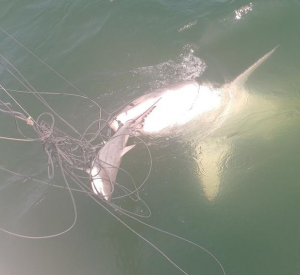
Giant great white ate its cousin during Sandbridge research expedition
When a Virginia Institute of Marine Science longline fishing survey caught a black tip shark on Friday, a much larger white shark couldn’t turn down an easy meal. Researchers just three and a half miles off Sandbridge were reeling in their 1.2-mile longline, equipped with 100 baited hooks, last week when a 12- to 13-foot great white showed up to see what all the fuss was about.,,VIMS began studying sharks in the mid-Atlantic in 1973 with its Shark Survey. It’s one of the longest running studies of shark populations in the world. The survey has shown a serious decline in shark numbers because of overfishing. That discovery led to the first shark management plan by NOAA Fisheries in 1993. >click to read<12:28
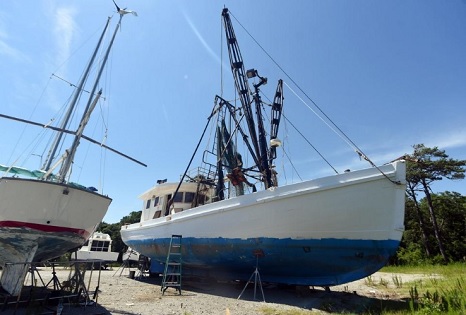
‘Big Earl’ prepares to head back to sea
Fishing vessel “Big Earl,” the shrimping boat that beached on the Holden Beach strand last month, is preparing to head back out to sea. For the last couple of weeks, Big Earl has been stationed at the Holden Beach Marina, getting some much-needed repairs. Reese Atkins, Big Earl’s owner, said the boat had to have several holes patched, a new starter installed, wooden posts replaced, engine repairs and a paint job. Yet he believes the boat will be ready to shrimp by the end of the month. “We are almost completed with repairs, I’m thinking the repairs will be done by this weekend,” Atkins said. >click to read<18:41
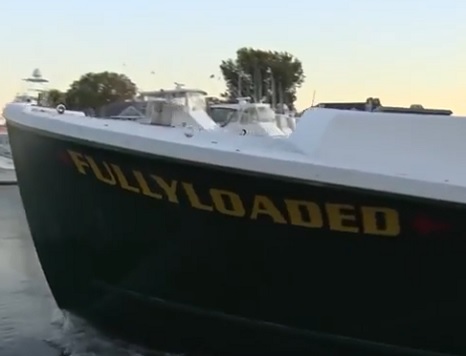
Forget Maine, Jersey fisherman catch quality lobsters
As the sun begins to set over Shark River, the boat “Fully Loaded” approaches the dock. As the name suggests, it’s fully loaded with lobsters. “It’s like gold mining. When you come in with the boxes full, it’s gold,” said Joe Horvath, co-owner of Jersey Shore Lobster Brothers. It’s a family business for Joey and Adam Horvath. How do they catch the lobsters? “Well, people think you just throw a trap out there and get them like a crab, but they’re totally not like a crab. You have to go out, you have to find what water depth they’re in, you have to find where they’re at. At certain times of the season they’re shallower, they’re deeper,” said Joey. >click to read<11:59
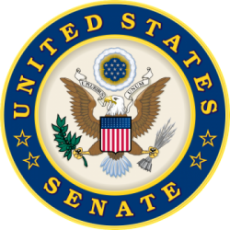
Booker, Carper, Nelson Introduce Bicameral Bill to Establish Grant Program for Right Whale Conservation
U.S. Senators Cory Booker (D-NJ), Tom Carper (D-DE), and Bill Nelson (D-FL), along with Senators Bob Menendez (D-NJ) and Kirsten Gillibrand (D-NY) have introduced a bill to protect the highly endangered North Atlantic right whale. Booker is a member of the Senate’s Environment and Public Works Committee, Carper is the top Democrat on the Environment and Public Works Committee, and Nelson is the top Democrat on the Senate’s Commerce Committee, which oversees ocean policy. Rep. Seth Moulton (D-MA), along with Reps. Raul Grijalva (D-AZ), Jared Huffman (D-CA), and Bill Keating (D-MA), has introduced a companion measure in the House of Representatives. >click to read<18:46
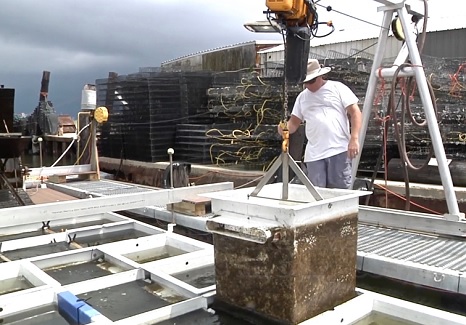
Bill’s changes would allow industrial-scale oyster farming in N.C.
Should oyster farming in North Carolina be a cottage industry or marine industrial operations owned by nonresident corporations? That is the question facing legislators working on changes to the state’s oyster aquaculture statutes enacted in 2017. Senate Bill 738, sponsored by Sen. Bill Cook, R-Beaufort, Sen. Harry Brown, R-Onslow and Sen. Norm Sanderson, R-Pamlico, drew strong opinions when it was discussed on May 30 at a meeting of the Agriculture, Environment and Natural Resources Committee co-chaired by Cook and Sanderson. >click to read<11:46
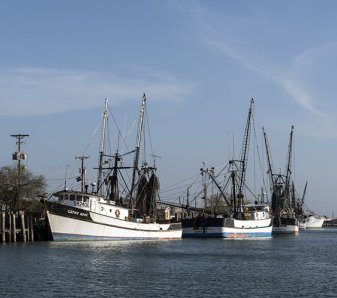
Responsible Offshore Development Alliance forms on the East Coast
With offshore renewable and wind energy development becoming increasingly common on the East Coast, a new alliance has formed to ensure that these developments are compatible with the existing interests of the nation’s fishing communities. The Responsible Offshore Development Alliance (RODA) brings together a broad range of commercial fishermen from across the Northeast and Mid-Atlantic to advocate for their shared concerns over emerging offshore developments. >click to read<17:24
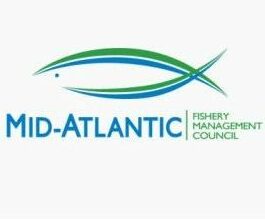
Mid-Atlantic Fishery Management Council Meeting in Philadelphia, June 5 – 7, 2018
The public is invited to attend the June 5 – 7 Mid-Atlantic Fishery Management Council’s meeting at DoubleTree by Hilton Philadelphia Center City 237 South Broad Street, Philadelphia, PA. Briefing documents will be posted as they become available. Meeting Agenda >click to read<. For online access to the meeting, enter as a guest >click here< www.mafmc.org12:12
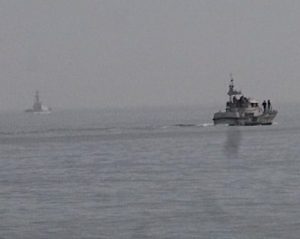
Coast Guard Suspends Search For Two People Missing After Plane Crash
The U.S. Coast Guard and East Hampton Town Police have announced that the search for the Piper Navajo and its two missing occupants has been suspended due to “rapidly detiorating sea conditions.”,,, The cause of the crash is still under investigation but many have commented on the strong thunderstorm that had swept across the South Fork at almost the same time as the crash. The captain and crew of the Montauk-based fishing boat Caitlin & Mairead, which was one of the first vessels on the scene of the crash yesterday, said that the strong squall had blown through right before reports of the crash. “The weather was awful savage,” said David Aripotch, the captain and owner of the Caitlin & Mairead. “There wasn’t a lot of wind, but there was a lot of rain and lightning, a lot of lightning. It went by quick and right after that the Coast Guard came on [the radio] and said there was a plane crash. We were 4 to 5 miles east so we headed there. >click to read<18:04






